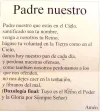Hola!
I am from Hong Kong and walked the camino last winter.
Other than my native languages I could only speak English.
I could get by with the 'frequent used word list' on the
Brierley guide and had no problem ordering food, getting a place to sleep and even managed a few trips to the pharmacy. Bartenders/pharmacists pretty well know what a pilgrim need.
I also carry a few pieces of 'Where is the nearest police station' language card from those language CDs and would flash them if I am to meet with any hospital emergency. I bet it would be easier if I'm to show them the flash cards than to use the language if I'm to meet with any emergency?
Many pilgrims speak English, and knowing that I'm an Asian (by my look, of course), they would use English to communicate with me. My Dutch friend told me that English has gain some popularity since the establishing of the EU, when people seek to find a common language and English is one. I do not know how true is that, though.
Locals are interested to talk to me, especially so when I am neither a Korean nor Japanese, as they form the biggest group of Asian pilgrim. However I do not speak Spanish. If we are fortunate enough, we would have someone to translate and they seem very pleased to have received a pilgrim from an interesting origin.
I met a few German pilgrims and they seem to be very enthusiastic to communicate in English. 2 of them told me that they very much would like to practice their English. They also told me the famous comedian who walked the camino few years back and the book he wrote inspired many of them to take the camino.
I was usually with pilgrims who were from the 'minority' group: Koreans, Swedish, Dutch, Polish, Germans, Italians and Americans/British/Australians.
So, do not worry, the camino will take care of you and you are likely to have a unique experience, whatever the language you could or could not speak.





























